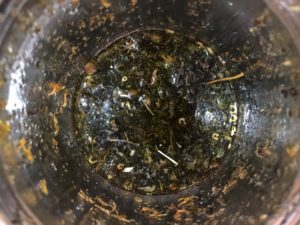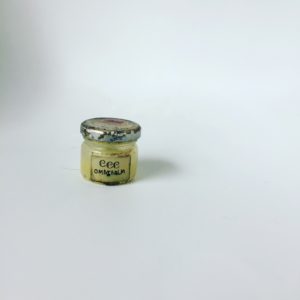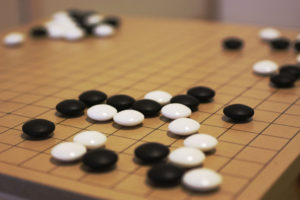- The word data comes from the latin word “datum”.
- A datum is something, like a stick, or a number, which can be given from one to another.
- Data is the plural of datum.
- As An Example:
- Take the data 4029:
- I just gave you this data.
- You can copy that.
- Share it.
- You can alter it.
- Delete it.
- Split it.
- Hide it.
- You do this to the data: 9204
- I just gave you this data.
- Take the data 4029:
- Data has no context.
- It has no meaning.
- It is only when it has context that data then becomes something with meaning.
- In 3.1, 4029 might be:
- My childhood phone number.
- An encoding for a three letter word.
- Part of a coordinate to a sub-marine base in a spy-movie.
- The last four contiguous numbers of my driving licence.
- It could have no meaning to me and meaning to you.
- What that meaning is, is the information.
- It could be two of your winning lottery numbers.
- It could have meaning in that you and I might share an exceptional coincidental void of connections to this number.
- Data has less value than information.
- All information is data.
- All data is not information.
- Data exists when there is a change of state of a representing/recording medium.
- Questions:
- Is 4029 the same data as 111110111101?
- It is the same number.
- As is FBD.
- It is the same number.
- Could a change in the locks and junctions in a canal system represent numbers?
- Is this identical to silicone logic gates?
- Imagine the following thought experiment :
- Consider:
- At time T1 You have a packet of data that can be divided up as: ABCD.
- It could be four bytes, or four yadabytes, it doesn’t matter.
- At T2 you split the packet into AB and CD.
- And then at T3 you join the packet back together again to make ABCD.
- At time T1 You have a packet of data that can be divided up as: ABCD.
- The composite question is: Where, How and Why does the information ABCD exist between T1 and T2 and T3?
- Consider:
- Is truly random noise information?
- Is 4029 the same data as 111110111101?
Author Archives: admin
Wound-Healer Omnibalm
The Wound-healer Triple-C Omnibalm Oil that I make is, I attest, exceptional in quality and origination. If there were olympics for healing oils and balms…
Here is how I make it:
Firstly make the Triple-C Omni Balm:
Soak a mixture of Camomile, Comfrey and Calendula in variant tree oils, in the dark, for as long as you can. Stirring very occasionally. Then extract this mash in three quite different ways: cold pressed, steamed and boiled.
The resultant green oil is Triple-C oil.
I use this with beeswax in my 3-C-Omnibalm Oil. I still make it to the same formula six years later.
I also use it as the basis for the Wound Healer Omnibalm which we now use on all manner of cuts, grazes, burns and punctures. Even committed woo skeptics have attested to its remarkableness. (Please note, I am not trying to sell you this stuff. #DIY)
In order to make the Woundhealer I take the above made 3C Oil and, into this, I grind up, as fine as possible, various amounts of: bacopa, cinnamon, gotukola, turmeric, chillie, saffron and other top-shelf spices. It makes this bright red oil that, in my opinion, is better than placebo at healing and helping wounds. #woo
What stuff!
EMF
EMF is the radio waves that zoom from your phone to the phone mast. The waves of energy that fill your house from your router or your TV Box. The weak waves of Bluetooth and the strong waves of 4g. They are the microwaves that defrost your fajita.
They exist naturally, in oceans and the Earth’s electro magnetic fields. We know they bust forth from the stars and rain at us from every direction.
But recently and for obvious reasons, they have become much, much more abundant in our lives. And much more acute in their energy.
Should I be worried?
Many people and organisations say they are totally safe. -“The energy just isn’t high enough”.
Many clever people think that RF radiation is one of the biggest health threats we face as a civilization.
What should I think?
What should I do?
What is my rational response to this?
Let’s Enumerate!
The Science
- We live in a world with a more complex Electro Magnetic Frequency pattern than 200 years ago.
- You can see this by taking an EMF detector into a cave.
- That is how it would have been, 200 years ago.
- You can see this by taking an EMF detector into a cave.
- We live in a world with a higher amount of EMF energy compared to 200 years ago.
- All of our phones and TV stations and Routers are all releasing more EMF energy into the world.
- We live in a world with a higher amount of EMF energy and complexity than thirty years ago.
- We know that EMF Energy can cook meat.
- We know it is used in Microwaves.
- We know how this works:
- Water Molecules in the meat are vibrated super fast and the resulting friction creates the heat that cooks the meat.
- We know that the energy in a Microwave oven, in that small space, is much higher than the energy coming out of my laptop wifi.
- We know how this works:
- We know it is used in Microwaves.
- We know that the energy pulsed into a body, by a Wireless device, is inversely proportional to the distance from the source multiplied by itself.
- This is a fundamental principle of physics.
- It means that holding it to your skin is very energetically different than if you had your phone in your bag.
- It is not yet possible to be certain about the possible health risks.
- This is not true about, say Cigarettes.
- It might come that one day we will see EMF like Cigarettes.
- It will never come again that we will see Cigarettes as harmless.
- This is not true about, say Cigarettes.
My Opinion
- I think that there is a significant amount of science, from all over the world, suggesting a multitude of harms caused by extra EMF in our lives.
- However: The demonstrable and accepted fact that EMF radiation can effect cells is the only that scientific conclusion that I need.
- Knowing this makes everything else redundant, it is a grounding of potential negative effect.
- I do not want my cells affected by EMF. (Unless its super-powers.)
- I don’t care if EMF only changes:
- How my cells tick their circadian tocks.
- How my cells metabolise energy.
- The risk factor for extra tiredness.
- Given The Choice: I do not want my cells affected by EMF radiation.
- Do you want your cells to be changed by your cellphone?
- I don’t care if EMF only changes:
- I do not want my cells exposed to EMF.
- Once I see the risk vectors then a cheap, safe and seemingly effective strategy is to reduce exposure to EMF.
- If one wishes to minimise their cellular exposure to EMF then there are a number of tactics:
- Scientifically Unquestionable tactics:
- Sleeping in a lead lined chamber within a faraday cage.
- Using a some kind of Distance From Source multiplier; such as a cushion or rolled up denim jacket.
- Turning the wifi router off at night.
- Questionable Tactics:
- Surrounding your router with Amethyst crystals.
- Painting your house in special paint.
- Sleeping on a bed made of shungite.
- Wearing WooShoesTM
- Scientifically Unquestionable tactics:
- Airplane mode reduces the amount of EMF radiation going into your body.
- It will also bestow these benefits upon you and your phone:
- It will save your battery.
- It reduces the chance of disturbance.
- Sometimes this is good!
- Airplane mode has a very low time cost.
- It will also bestow these benefits upon you and your phone:
- I think the jury is very out on the EMF==Cancer connection.
- Some clever people, including experts, are utterly convinced about it.
- I belive that EMF exposure causes sleeplessness.
- I belive that EMF exposure causes heating but this is not significant, in most cases.
- I belive there is good evidence that EMF exposure effects reproduction on a cellular level.
- I belive that distance is your friend when it comes to EMF exposure from any source.
- In your Iphone settings it alludes to this inverse square in the RF Exposure section.
The Lymphatic System
One thing that I have taught myself about recently is a basic understanding of the lymphatic system.
(Thanks to the internet and The Pareto Principle it is not difficult or high time/money cost to get a basic understanding of most things. Phew! #CHE)
So here is my basic understanding of the Lymphatic System:
The Science
- Its role across a vast number of wellbeing vectors is incontrovertible.
- It is the main engine of our immune system for both toxins and pathogens.
- It is the sorting sub-system of our digestive system.
- It is analogous to the drainage of the immune system.
- It is analogous to the barracks of the immune system.
- Our brain has a lymphatic sub-system.
- This directly removes the physical waste and toxins from the brain.
- We have three times more lymph in us than blood.
- The lymphatic system has no pump.
- This is unlike the veinal and arterial systems.
- There are only two ways to move lymph about:
- By moving the body.
- By constricting the blood vessels.
- This is done when we are cold.
- The Lymphatic system connects to the digestive system.
- It is like the filter layer of our digestive system.
So assuming the truth of the statements above, I think it is reasonable to conclude that:
My Opinions
If you wish to optimise your wellbeing then learning and optimising your own Lymphatic system should be a high priority. I currently think that the following is good advice, though of course, it is is ripe for questioning and doubting:
- Consume Pro-lymphatic foods.
- Be as active as possible.
- This is in order to keep the Lymph draining and flowing.
- This is in order to keep the immune system active, replenished, efficient and robust.
- This is in order to keep the Lymph draining and flowing.
- If you feel poorly then try to be as active as possible.
- Drink lots of water.
- The return of the eternal no-brainer.
If you find fault above please let me know.
The Parts of a Program
A Computer Program has four kinds of logical parts.
The “Ions.”
- Function:
- An operation
- A procedure
- An discrite algorithm
- Where a change is made that is not just a logical change
- Information:
- States are recorded
- Variables
- Files
- Packets
- The smallest measure in all possible worlds is the bit.
- The difference between this and that.
- Yes and No.
- Repetition:
- When something is repeated.
- When something is repeated.
- In essence it is a type of conditional.
- If a condition is true do these conditions until the condition is false.
- Condition:
- This is where the program makes a choice.
- If this then that.
- If not this then not that.
- Conditionals drive the magic of computing.
- They are logical combustions.
Any program can be broken down into these parts. I cannot conceive of a program that cannot be broken down to these parts. My analog wrist watch is a computer program with these logical parts.
- Function: The date dial turns.
- Information: The numbers involved.
- Repetition: The tick and the tock.
- Condition: If the hour hand hits twelve advance the day dial.
- Etc…
If you are trying to understand a computer game then consider that the first method is to break it down into the hierarchy of its parts.
Cartesian Computational Thinking
There is a point of beautiful overlap between modern computational thinking and the Cartesian method.
Descartes has four stages for any problem:
- Start From Nothing
- DNA
- DYD
- Break It Down
- The second ·was· to divide each of the difficulties I examined into as many parts as possible and as might be required in order to resolve them better.
- KTP
- Join The Dots
- Starting with the simplest and most easily known objects in order to move up gradually to knowledge of the most complex.
- Represent The Facts
- And the last ·was· to make all my enumerations so complete, and my reviews so comprehensive, that I could be sure that I hadn’t overlooked anything.
- KGN
- KTF
Four centuries later we get the idea of computational thinking expressed as:
- Deconstruction (BID)
- Break the whole into parts.
- Break the systems into sub-sytems
- Patterning (JTD)
- Abstraction (JTD)
- The Big Picture.
- What emerges?
- Is it harmonious?
- Algorithms
- An input solves an output.
- A series of instructions to solve a task.
- A logical system.
Learning to use the above methods drives understanding, just as they drove The Enlightenment and and the Age Of Reason and digits.
Freemium Cons
Please read my previous post on Winability before this one.
Winability is a regulator of continued playability. It is the driver of the game and it has been thus since caveman first played Spoof. But then along comes this new model that works by a hijack this key playability driver, Winability. In a freemium game, no matter how deep and complex and rich and narrated and aesthetic it is, the game’s winability has been hijacked, and the ransom is your time.
I have really enjoyed some Freemum games. Boom Beach. Crown Rush. Smart games. Deep in the strategies and complex enough to pique a good learning response. But then, because the fundamental winnability of the game is determined not by skills and smarts but by how much the player is prepared to wait.
Note the difference. It is not like spending time to learn the intricacies of a game. It is spending time directly so that you can progress in the game. Ponder that it is a profound difference within this small world.
Time is the greatest game parameter and the greatest life commodity. These games have built in them, at the base, the incentive to waste the player’s time.
I think it is mean to waste someones time on purpose. I think if a restaurant puts a thirty minute lag on their orders just to make them seem not processed then that is mean.
I can see no real distinction between this and freemium games.
Winabiliity
When you Break It Down it becomes clear that there are a handful of shared game vectors that make good games good and bad games boring: Learnability, Playablity, Newness…etc. These all propagate or not the emergence of fun.
Hopscotch, COD, Draughts, Poker… they all share these. But they share them differently.
Hopscotch lacks something that Patience has. Perhaps more than one thing. Even without investigating we can imagine that whatever is lacking from Hopscotch is an aspect that continues to contribute to the playability of Patience over time.
I think the ninety year old would affirm that “I play patience for fun” just as much as the nine year old player would.
One game attribute is Winability. This is distinct from Challenge, I think. Winability it is about the pure competitive aspect of the game, internally and externally and how that aspect needs a sweet balance to maintain fun over time.
Winnability is a key concept in CGP.
Tic-Tack-Toe, like its identical twin, Naught’s and Crosses, and also like battleships and Connect 4 and Hangman are all examples of games with an decreasing winability profile. There might be a bit of a jump at the start, but after that it is a pretty accelerating drop.
For example: If you think about the opening tactics of Connect 4 you can see the key structures that cause the jump in Winability. But after this and, say, the value of diagonals, and so on, the winnability plummets. It lacks Depth and Complexity and it has a small possibility space.
Connect 4 is a good game. I have played it much and will play it again. But I could never play it always.
Winnability can be seen as the learning the harmonies between wining, loosing and neither. It is about how this harmony evolves as a player’s game evolves.
If you win every game then that game is not going to be fun. If you loose every game, the same.
In the middle, somewhere, is the harmonic where the lasting fun can happen.I continue with with chess and uniwar. It may stop one day.
Winability needs to self optimise. We see this often in Backgammon. New tactics entail new strategies and victories.
I havent got much better at Chess over the years. But my winability has been balanced.
If winability isn’t balanced then the player’s engagement will fade. It will either have become too easy or too hard and with too little variance from this.
The potential for online games means that Winability can be normalised. Is this good? You could have it so that players always played demonstrably equally skilled players.
I think that Imbalanced Winability is one of the key reasons gamers stop playing a certain game, especially because it is hard to maintain over time.; Diminishing Returns on all Parameters.
If you look at any ongoing tournament, in any game, you will see self organisation in action. The players by and large settle at the level of their comparable players.
In order to balance winability the game and the opponents(s) must interact in a way that requires an increase in the game smarts and skills.
It is not just about the wining the game it is about understanding the win, whoever wins. If you can see why you have lost then there is a level at which you have won.
Should you continue playing a game you know you will loose?
I think Winability cannot be maintained without a big enough possibility space. I guess it needs depth and complexity, but I am not sure. A game like Bejeweled is shallow and simple but because of the hand/brain/eye aspects Winability emerges outside the rules. It is external to the game, from the player’s body and mind. This doesn’t happen with chess, does it?
Winability is ones ability and interest to see the game in full. It has to be fun.
What is a Computer Game?
Using the Cartesian method we could enumerate this question as:
- What is a computer game?
- What is a computer?
- A system designed to logically process information.
- System: an causal structure
- Structure: A consistent arrangement of elements.
- Causal: Making something happen or not.
- A causes B if…
- “If the engine hadn’t stopped there would have been an accident.”
- Designed: Made with intent for purpose.
- Logically: principles that flow without contradiction from:
- The law of The Excluded Middle
- X is either true or not true.
- These principles are AND, NOT and OR.
- There are principles derived from these like XOR.
- The law of The Excluded Middle
- System: an causal structure
- A system designed to logically process information.
- What is a game?:
- An activity that satisfies the following:
- It has rules
- It has objectives
- It is done for fun
- What is Fun?
- A fun activity increases positivity without there necessarily being a corresponding external effect.
- An activity is fun if someone says they do it for enjoyment.
- What is Fun?
- An activity that satisfies the following:
- What is a computer?
The New No Go Game
More than a couple of times in my life I’ve tried to learn the Game Of Go.
This is the ancient Chinese game that is harder to solve (AI or heuristics) than Chess, or, I think, any other game. Only in 2016 was the best player properly beaten by a computer. One with the multiple brains and yadabyte memories driven by the vastness of The Google. It was a big moment for Humanity, I think.
Many good games are easy to learn and hard to master. The Game of Go isn’t like this. It is really hard to learn, and very few master it. They say it takes decades to become a mere “quite good”.
This, to me, has an inevitable subtracting effect on my enjoyment of the game; it is just so hard to be quite good.
It would take so much time and, during that valuable T-Spend, mostly, it would not be fun. There would be few “yeahs!”
It would not have many of those moments of understanding a new tactic or strategy that are common in other exceptional games.
The reason for it’s hardness isn’t like in some games.
The problem isn’t the games complexity, that is , how many rules and parameters and interconnections are involved in it’s realisation, AKA, “playing”.
Nor is it the game’s depth – that meaningful, relative measure of the structure of the hierarchy that represents the emergence of the tactics, strategy and fun experienced by the players.
Rather, perhaps uniquely with the Game Of Go, it is the game’s vast possibility space that seeds the issues for me.
Possibility Space
A thing’s “possibility space” is the conceptual framework that the thing occupies. A puppy has a possibility space. So does a movie and an omelette.
The concept of “Castling A King” doesn’t exist in the possibility space of Naughts And Crosses. Nor does it exist in Hopscotch. But it does exist in Chess.
When you think about things in terms of their possibility space, you gain a new perspective.
Possibility space is useful to be seen as layered:
If CAK is in Chess and it is possible that Eastender’s might involve Chess (Eg in an episode. Which, of course, it is) then CAK is in the possibility space of Eastenders (Which, it is, isn’t it?).
This does not mean the same as the trivial “CAK is in the possibility space of all things, because, eg, Time-Travel.”
Possibility spaces are much easier to apprehend when they are seen as tied to shared frameworks. Think of how this influences the emergence of “plausibility” as a property of a narrative.
To be meaningful possibility spaces should be internally consistent. It is for this reason that I would say we wouldn’t say that CAK was in the possibility space of Eastenders but not of a historically accurate soap opera set in The Stoneage.
Lastly, possibility space isn’t just about points of property possibilities, but also emergent phenomena that the game originates. The excitement of backgammoning someone is not contained in the necessary and sufficient game description of Backgammon, but it is clearly in the possibility space of the game. It is a foundational property of the gameplay. We can deconstruct the possibilities and we can abstract the possibilities.
The Game Of Go is not deep in its structure. Because the board is nineteen wide, as opposed to eight in chess, there is a computational explosion in the amount of information that needs to be broken down and abstracted in order to significantly understand the game. It is a huge and wide and shallow sea of choices but from this sea emerges game phenomena that I have no idea about. I can see they are going to be there, but I cannot conceive of them. I think if you try to learn Go you will soon understand this, if you don’t already.
Then the realisation is this: until you get good enough to meaningfully understand these emergent game phenomena, then Go is going to remain a relatively shallow game. Shallow tactics and strategies compared to the big picture games of the Go-masters.
In my opinion Go is not very fun to learn because it is so very hard to average.
There is a time/cost/fun/potential/learnability/etc equation with any game.





